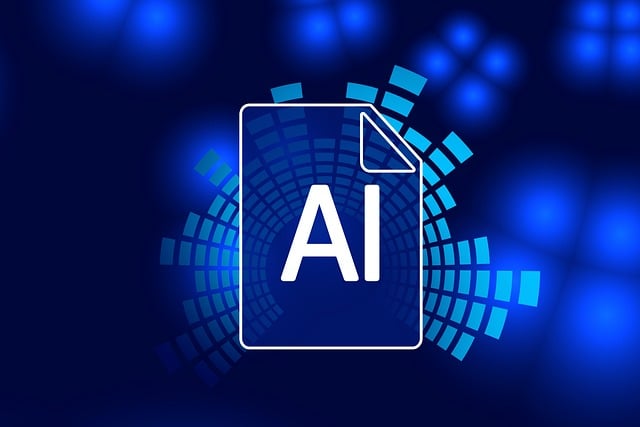Artificial Intelligence (AI) is significantly enhancing the field of search intelligence by providing more personalized and precise information retrieval. AI's ability to interpret complex queries and understand context and semantics through machine learning models has improved search engines' effectiveness. These models are trained on large datasets to recognize patterns and predict user needs, leading to highly relevant and tailored search results. The integration of AI into search intelligence not only personalizes the user experience but also aids in making informed business decisions based on insights derived from data analysis. As AI continues to advance, it's set to make search even more intuitive, context-aware, and versatile, allowing for voice commands and image recognition in addition to text-based queries. The future of search is deeply rooted in the continuous learning capabilities of AI, which promises to redefine how users interact with information across various domains, making artificial intelligence search a transformative force in technology.
In an era where information is ubiquitous, the role of artificial intelligence in search intelligence stands paramount. As we delve into the evolving landscape of AI-driven searches, this article explores how advancements in machine learning algorithms and predictive analytics are revolutionizing the way we interact with data. From refining search queries to personalizing user experiences, the future of search intelligence promises a smarter, more intuitive interface between human curiosity and the vast digital realm. Join us as we navigate the trajectory of these transformative technologies and their implications for the next frontier in AI search capabilities.
- Navigating the Evolution of Artificial Intelligence in Search Intelligence
- The Impact of Machine Learning Algorithms on Enhancing Search Queries
- Predictive Analytics and Personalized Search: Shaping the Future of AI-Driven Searches
Navigating the Evolution of Artificial Intelligence in Search Intelligence

The intersection of artificial intelligence (AI) and search intelligence is a dynamic space where advancements continually redefine the capabilities and efficacy of search systems. As AI algorithms evolve, they become more adept at interpreting complex queries and delivering nuanced results that meet user intent with greater precision. Machine learning models, trained on vast datasets, are now better equipped to understand context, semantics, and even the subtlety of colloquial language, leading to a more intuitive search experience. This progression in AI’s understanding of search queries enables the retrieval of highly relevant information, often anticipating user needs before they are explicitly articulated.
Moreover, the integration of AI within search intelligence is not limited to improving query responses. It extends into the realms of personalization and predictive analytics, allowing search engines to tailor results based on individual user behavior and preferences. This personalized approach enhances user engagement and satisfaction. Additionally, AI-driven search intelligence is poised to transform data analysis, offering insights that can inform business decisions, optimize user experience, and even shape the development of new AI technologies. As AI continues to advance, it will undoubtedly reshape how we interact with information, making search a more efficient, intelligent, and integral part of our daily lives.
The Impact of Machine Learning Algorithms on Enhancing Search Queries

The advent of machine learning algorithms has significantly advanced the capabilities of artificial intelligence in search engines, leading to a more intuitive and efficient user experience. These sophisticated AI models analyze vast amounts of data, identifying patterns and preferences that enable them to refine search queries and deliver results that are highly relevant to individual users. The continuous learning nature of these algorithms means they improve over time, offering a personalized search experience that adapts to each user’s behavior and interests. As a result, the precision of search intelligence has grown by leaps and bounds, making it easier for users to find exactly what they’re looking for without having to sift through irrelevant content.
Furthermore, machine learning algorithms are not limited to understanding text-based queries; they can also interpret context from voice searches and image recognition, expanding the scope of search intelligence. This multifaceted approach ensures that users can perform searches using a variety of inputs, which the AI then processes to provide the most accurate information available. The integration of natural language processing further enhances this capability, allowing users to interact with search engines in a conversational manner, as if they are speaking with a human assistant. This progression in search intelligence, driven by advancements in artificial intelligence, is set to reshape how we access and utilize information, making it an area of keen interest for the future of technology and its applications across all sectors.
Predictive Analytics and Personalized Search: Shaping the Future of AI-Driven Searches

Artificial Intelligence (AI) continues to revolutionize the landscape of search intelligence, with predictive analytics and personalized search being at the forefront of this transformation. Predictive analytics leverages AI’s ability to analyze patterns in user behavior, preferences, and interactions, forecasting potential future outcomes. This enables search engines to not only return results based on historical data but also to anticipate user needs and deliver more relevant and accurate responses. The integration of predictive analytics ensures that users receive a tailored search experience that aligns with their unique preferences and past behavior.
Moreover, personalized search is becoming increasingly sophisticated due to advancements in AI algorithms. These algorithms analyze an individual’s previous searches, clicks, and engagement levels across various platforms to fine-tune the search experience. The outcome is a highly personalized feed that caters to the user’s specific interests and needs. As AI-driven searches evolve, they are expected to become more intuitive, predictive, and contextually aware, providing users with a seamless and efficient search experience. The convergence of predictive analytics and personalized search represents a significant leap forward in the field of AI, promising to redefine how we interact with digital information and tools. This shift underscores the importance of AI in shaping the future of search intelligence, ensuring that users receive the most relevant and useful information at their fingertips.
In recent years, artificial intelligence in search has transformed how we interact with information, making it more accessible and tailored to individual needs. As machine learning algorithms refine search queries and predictive analytics pave the way for personalized experiences, the future of search intelligence promises a new era of efficiency and relevance. The convergence of these advanced AI capabilities not only enhances user engagement but also opens up unprecedented opportunities for businesses to connect with their audiences. As we continue to witness the evolution of AI in search, it’s clear that the potential applications are boundless, heralding a future where search intelligence is an integral part of our daily lives and decision-making processes.
